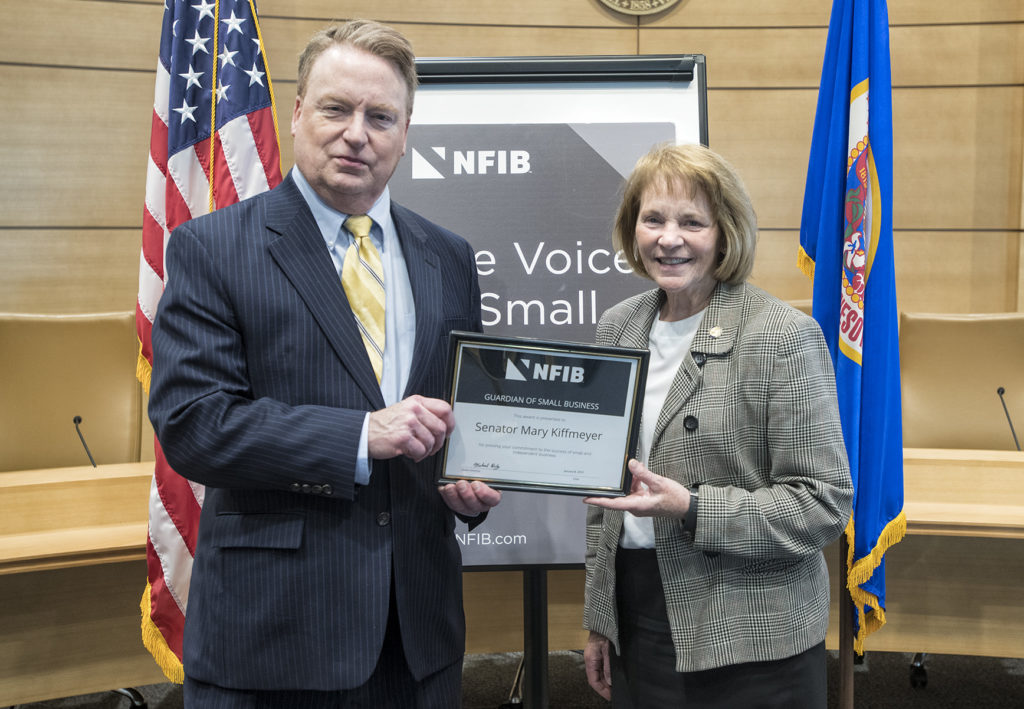(St. Paul-MN)NFIB Minnesota today announced the presentation of its Guardian of Small Business award to state Senator Mary Kiffmeyer (R-Big Lake).
“Senator Kiffmeyer is a real friend of small business, and we are happy to announce that she has earned the NFIB Guardian of Small Business Award,” said Mike Hickey, NFIB Minnesota state director.
“Small businesses represent nearly half of all jobs
in Minnesota and play a pivotal role the growth and strength of our state’s
economy,” said Senator Mary Kiffmeyer. “I’m truly proud to receive this award
from the NFIB on my small business record, and look forward to continuing to
work to lift the economic burdens on these Minnesotan job creators so that our communities can thrive and our
residents can seize on new and better work and
life opportunities.”
With 10,000 members statewide, NFIB is Minnesota’s largest small-business group in terms of entities. NFIB gives out its Guardian of Small Business award at both the federal and state level to recognize lawmakers who have been supportive of small business on critical issues. Kiffmeyer’s award was based on votes she took during the 2017-2018 sessions of the Minnesota Legislature. She made many votes beneficial to small business including:
- Voted for a significant small-business property tax reduction that was signed into law which reduced taxes for the smallest businesses by 20 percent to 30 percent! The average business received a $700 to $900 reduction for taxes payable in 2018.
- Voted for a significant $1 million increase in the estate tax exemption that was also signed into law, which raised it from $2 million to $3 million per person.
- Supported a desperately needed 25 percent reduction in health insurance premiums in 2017 for those in the individual market that was also signed into law, and which made other critical insurance reforms to make the Minnesota market more competitive.
- Supported critical legislation that preempts local units of government from enacting minimum wages higher than the state’s, and from imposing other new mandates on local employers.

